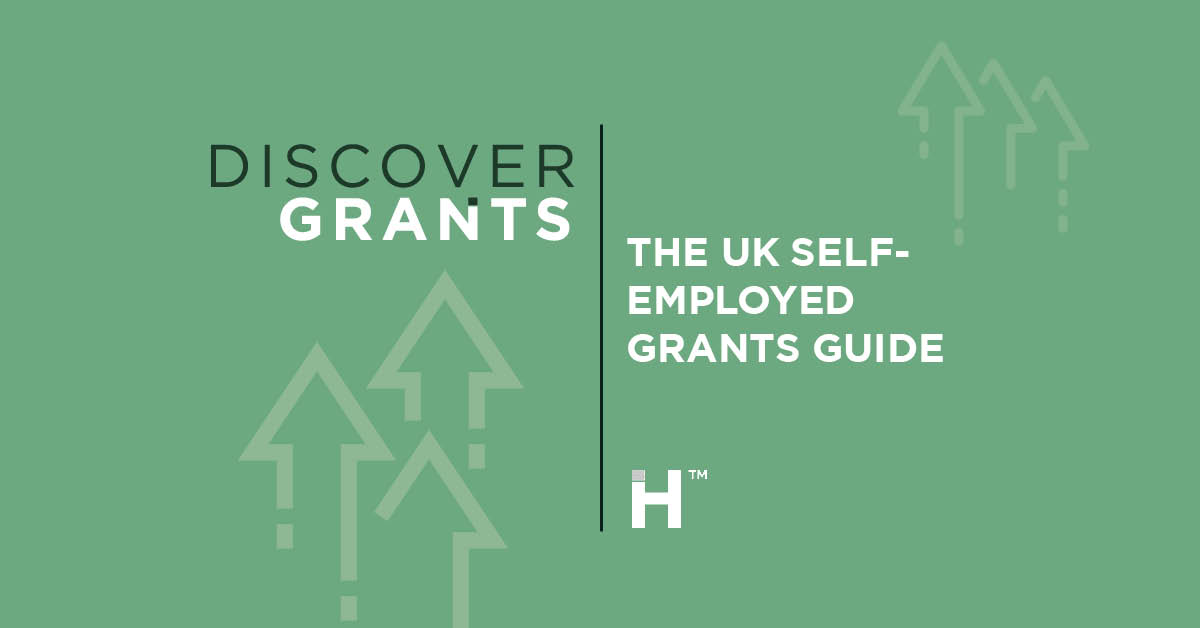The UK self-employed grants guide
There are a range of UK self-employed grants available. These can help ease the financial burden of running your own business. It can be a challenge writing a successful grant application, so this blog will contain some helpful tips.
Where can I find UK self-employed grants?
Well, there are a number of sources that you can go to, to find UK self-employed grants. Cash grants for small businesses can be given out by private businesses, the government and local authorities. It can be hard to keep track of which websites offer what grant opportunities. Actually finding a suitable grant for your business is half the challenge!
Luckily for you, that’s about to get a whole load easier. Discover Grants’ Grant Tracker service hosts all the latest grant opportunities in the UK from 1,500 data points. We manually track opportunities, labelling them with accurate keywords. This can help streamline your search whether it’s for UK self-employed grants or innovation grant funding.
Leave your details to register. Don’t miss out on this free service that can be used as a time-saving tool.
What UK self-employed grants are available?
SEISS fifth round
During the pandemic, the UK government created the Self-Employed Income Support Scheme (SEISS). These UK self-employed grants are open to applicants for a fifth round. The scheme was developed in response to COVID-19. If you’re self-employed and your business has been affected by the pandemic, you can apply for a taxable grant. The fifth grant covers May 2021 to September 2021.
What’s available?
The amount of funding will be determined by how much your turnover has been reduced between April 2020 – 2021. The fifth grant will be worth:
- 80% of 3 months’ average trading profits, capped at £7,500, for those with a turnover reduced by 30% or more
- 30% of 3 months’ average trading profits, capped at £2,850, for those with a turnover reduced by less than 30%.
Eligibility criteria
To be eligible for the fifth grant, you must be a self-employed individual or a member of a partnership.
- You must earn at least 50% of your total turnover from self-employment
- Your average trading profit must be £50,000 a year or less.
You must have traded in the tax years:
- 2019 – 2020 and submitted your tax return on or before 2nd March 2021
- 2020 – 2021.
You must either:
- Be currently trading but impacted by reduced demand due to coronavirus
- Have been trading but are temporarily unable to do so due to coronavirus.
How to apply
If you’re eligible based on your tax returns, HMRC will contact you in mid-July 2021. You will receive a date you can make your claim from. To make a claim you will need the following:
- Self-Assessment Unique Taxpayer Reference (UTR)
- National Insurance number
- Government Gateway user ID and password
- UK bank details including account number, sort code, name on the account and address linked to the account.
Applications must be submitted by 30th September 2021
This is just one grant that’s available for the self-employed, there are plenty of others. Grant applications can be highly competitive, so you want to make sure that your application stands out.
A Grant Writing Consultant can help. They are experts in writing grant proposals and know how to write a winning application. Outsourcing your proposal to a writer can help increase your chances of success.
You could also check out our Grants for Businesses blog to see what’s available in the UK.
Remember when writing an application for UK self-employed grants to:
-
Plan well in advance
It shouldn’t come as a surprise that the most successful applicants for UK self-employed grants have planned their response. Managing your time efficiently and planning your response can really make an effort in your success rate. Depending on the grant, a good idea is to work back from the submission date. Unless there is limited funding where it’s first come, first served.
Doing the footwork early can help you get a step up when writing your application. Do some research on the funders and make sure you have evidence to back up what you’re saying. Being organised and having a bank of responses ready can help you prepare for any question.
Breaking down the specification is a great place to start. Make a note of the key points in each question, the word counts and if any additional documents are required.
-
Consider the format of your proposal
A well-formatted proposal for UK self-employed grants will win you marks from the funder. Stick to the guidelines and don’t deviate from the funder’s instructions. If you have a 500-word question, break it up. Use subheadings and bullet points instead of submitting blocks of text. Being well articulated is essential along with clear and concise answers. Try to convey your passion in your writing.
-
Proofread your response before you submit
Always proofread your response before you submit it. You only have one opportunity to make a first impression. Submitting a proposal for UK self-employed grants full of avoidable errors will not give a good impression. If you’re tired of reading your bid, wait a day or two before re-reading it. Additionally, you could get someone else to do a proofread. Make sure you allow time to make any amendments before you submit. You should ask yourself:
- Is anything unclear?
- Could something be explained further?
- Is there any awkward/unnecessary language?
- Have I covered every aspect of each question?
- Am I justifying why I need the funding?
If you follow these three tips, you’ll be well on your way to success. Ask for feedback if you’re unsuccessful and don’t be disheartened. This can help you improve next time around.
Our Services
Our Grant Writing Service is for businesses who want to start applying for grants, but don’t know where to begin. If you don’t have the resources or the time in-house to write a winning grant – we can help.
Our Grant Writing Consultants have over 60 years of experience in bidding for funding and grants. From grants for charities, start-up business grants and council business grants. They can take care of the whole thing for you – they’ll even submit it on your behalf.
Get in touch to find out how we can help your business grow!
Our Grant Tracker service is live and will host all the latest grant opportunities in the UK from 1,500 data points.
Sign up for free!





